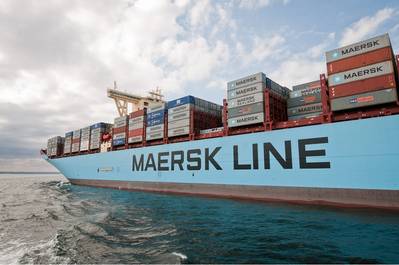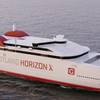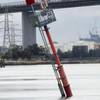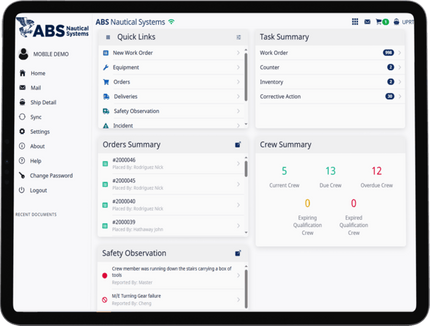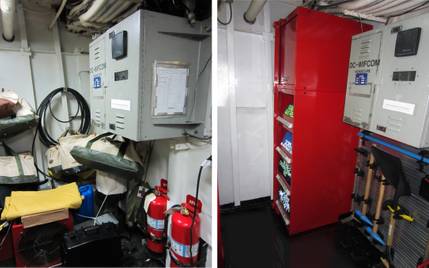Maersk Warns Oversupply to Hit Profits
Maersk warned on Thursday that container shipping overcapacity would hit profits more than expected this year and that it didn't see a major boost from the jump in freight rates due to Red Sea disruptions, hammering its shares.
The warning, which also led the Danish shipping giant to suspend its share buyback programme, is in stark contrast with investors' recent optimism about the sector.
Container shipping companies have been among the best-performing stocks in Europe this year as the re-routing of vessels following attacks on shipping by Houthi militants in the Red Sea - a major trade route - has boosted freight rates.
Maersk's shares were down 17% at 1321 GMT to levels last seen before the Red Sea disruptions started in December. Shares in rival Hapag-Lloyd were around 11% lower.
Maersk, like other shipping companies, has been diverting vessels on a longer route around Africa, and some analysts had expected extended journey times and higher freight rates would outweigh a big increase in new container ships joining the market.
However, Maersk CEO Vincent Clerc told reporters that about twice as many new vessels were coming to market compared to the extra capacity required to send ships around Africa.
The pandemic boost to shipping profits resulted in a wave of new ship orders. Vessels delivered at the end of last year were used to cover the gaps created by longer sailing around Africa, but the overcapacity will only fully materialise during 2024, and be felt in 2025 and possibly into 2026, Clerc said.
"We will see that there are too many ships in the world compared to the number of containers that need to be transported," he said. "Even if a year from now we're still sailing south of Africa, excess capacity and pressure on prices will persist."
BAROMETER
Maersk, viewed as a barometer of world trade, said it expected underlying earnings before interest, tax, depreciation and amortisation (EBITDA) of between $1 billion and $6 billion this year, compared with the $9.6 billion achieved last year.
Analysts in an LSEG poll had on average forecast an EBITDA of $6.6 billion this year.
"We assumed guidance would be conservative, but we view these figures as rather pessimistic and within our expectations prior to the Red Sea disruptions," Jefferies analysts said in a research note.
Analysts at JP Morgan said they expected Red Sea events to boost earnings in the first quarter, but "the general state of overcapacity is likely to return as 2024 progresses" and likely continue into 2025.
Maersk said one-third of its container volumes were impacted by Red Sea disruptions. Last month, the company attempted to resume sailing through the Red Sea. Clerc said the message from the U.S. Navy was that it currently cannot guarantee safe passage through the area.
"It's not going to be the case that just because nothing has happened there for a week, we can try again," he said. "We need to be sure that the day we return to the Red Sea, it's because we believe we can do it permanently."
Clerc said the Red Sea crisis did not match the scale of disruption caused by the pandemic, when freight rates and shippers' profits were bolstered by multiple shocks, including lockdowns, changing consumer behaviour and bottlenecks.
"In this case, it's only a longer transit time," he said. "The moment we start sailing via the Suez Canal again, prices will fall immediately."
(Reuters - Reporting by Jacob Gronholt-Pedersen Editing by Stine Jacobsen and Mark Potter)



